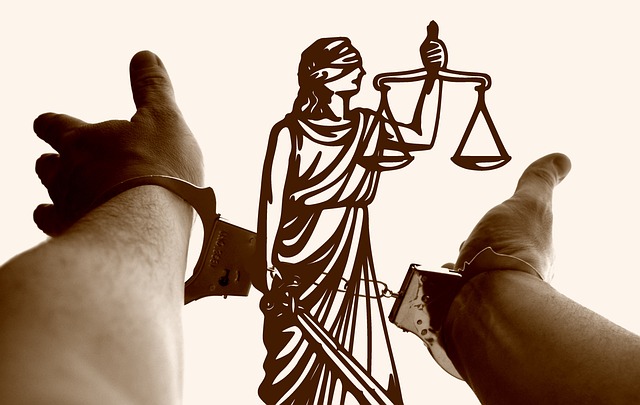In the complex healthcare legal landscape, navigating regulations related to patient care, privacy, insurance, and criminal intent is crucial for healthcare providers facing high-stakes cases combining medical malpractice allegations with criminal charges. Healthcare attorneys specialize in defending these cases, bridging medical practice and criminal law through strategic maneuvers and legal protections. Defending against assault charges in criminal court is vital to mitigate risks and protect healthcare professionals from severe consequences. Experienced legal counsel specializing in healthcare law crafts tailored defense strategies, leveraging knowledge of industry standards and patient care protocols. This approach aims for complete dismissal of charges, prioritizing ethics, trust, and philanthropy to foster positive relationships with communities and ensure patient rights.
In the intricate healthcare legal landscape, professionals face complex challenges. From understanding a web of regulations to navigating criminal charges and ethical dilemmas, this comprehensive guide explores critical issues. We delve into the nuances of defending against assault charges in criminal court, balancing patient rights with legal obligations. Through real-world case studies, we analyze the legal implications, offering insights for healthcare providers navigating this intricate terrain.
- Understanding Healthcare Legal Landscape: A Comprehensive Overview
- Navigating Criminal Charges: Defense Strategies for Healthcare Professionals
- Ethical Considerations and Patient Rights: Protecting the Vulnerable
- Case Studies: Real-World Scenarios and Their Legal Implications
Understanding Healthcare Legal Landscape: A Comprehensive Overview

Navigating the healthcare legal landscape requires a deep understanding of the complex web of regulations and policies that govern this critical sector. In addition to addressing patient care standards, privacy concerns, and insurance coverage, healthcare providers must also be adept at defending against assault charges in criminal court. High-stakes cases often arise when allegations of medical malpractice or neglect are coupled with criminal intent, potentially leading to severe consequences for healthcare professionals.
Mastering the art of navigating these legal complexities is crucial for achieving winning challenging defense verdicts. Healthcare attorneys play a pivotal role in safeguarding their clients’ interests by constructing robust defenses that account for the unique nuances of both medical practice and criminal law. By employing strategic maneuvers and leveraging available legal protections, they strive to avoid indictment and ensure fairness throughout the litigation process.
Navigating Criminal Charges: Defense Strategies for Healthcare Professionals

Navigating criminal charges can be a daunting task for healthcare professionals who find themselves facing assault allegations in court. The legal landscape surrounding medical malpractice and patient-provider interactions is complex, and defending against such accusations requires a strategic approach. One of the primary goals for these professionals is to achieve a complete dismissal of all charges, leveraging their unique knowledge of industry standards and patient care protocols.
Experienced legal counsel specializing in healthcare law is essential. They can help craft robust defense strategies tailored to each case. An unprecedented track record of success for his clients in similar situations can instill confidence in these professionals as they seek to protect their reputations and careers. Through meticulous documentation, expert testimony, and a thorough examination of the facts, it is possible to demonstrate that any actions taken were within the acceptable range of professional conduct.
Ethical Considerations and Patient Rights: Protecting the Vulnerable

In healthcare, ethical considerations are paramount, especially when dealing with vulnerable patients. The complex nature of medical practices presents numerous challenges, from consent issues to privacy concerns. Patients, often relying on healthcare providers for their well-being, deserve protection against any potential exploitation or abuse. This includes safeguarding them from the legal repercussions of high-stakes cases, such as defending against assault charges in criminal court, which can arise due to negligence or alleged misconduct.
Addressing patient rights is crucial within this context. Healthcare institutions and professionals must uphold their duties by ensuring informed consent, maintaining patient confidentiality, and providing care that meets ethical standards. By doing so, they contribute to a culture where philanthropy and trust thrive, fostering positive relationships between healthcare providers and the political communities they serve. Avoiding indictment for ethical breaches is not just about legal survival; it’s about upholding the integrity of an industry vital to society’s well-being.
Case Studies: Real-World Scenarios and Their Legal Implications

In the realm of healthcare, legal issues often arise from complex and delicate situations, making case studies a vital tool for understanding real-world scenarios and their legal implications. One such compelling example is defending against assault charges in criminal court. Healthcare professionals, despite their noble duties, may find themselves facing allegations that threaten their careers and reputations. These cases highlight the intricate balance between patient care and personal boundaries, requiring a nuanced approach in both legal defense and ethical practice.
For instance, a white-collar defense strategy might be employed when a medical professional is accused of non-consensual touching or inappropriate behavior. A winning challenging defense verdict in such cases hinges on meticulous documentation, witness testimonies, and a thorough understanding of the patient’s consent rights. This scenario underscores the importance of general criminal defense tactics in mitigating charges and ensuring justice for healthcare providers who find themselves entangled in legal labyrinths.
In navigating the complex healthcare legal issues, from understanding the expansive landscape to addressing ethical considerations and patient rights, healthcare professionals must remain vigilant. The article has delved into crucial aspects, including strategies for defending against assault charges in criminal court. By examining real-world case studies, it underscores the importance of staying informed and adhering to legal guidelines to protect both patients and practitioners. As the healthcare field continues to evolve, so too must our approaches to legal navigation, ensuring a harmonious balance between patient care and compliance.






